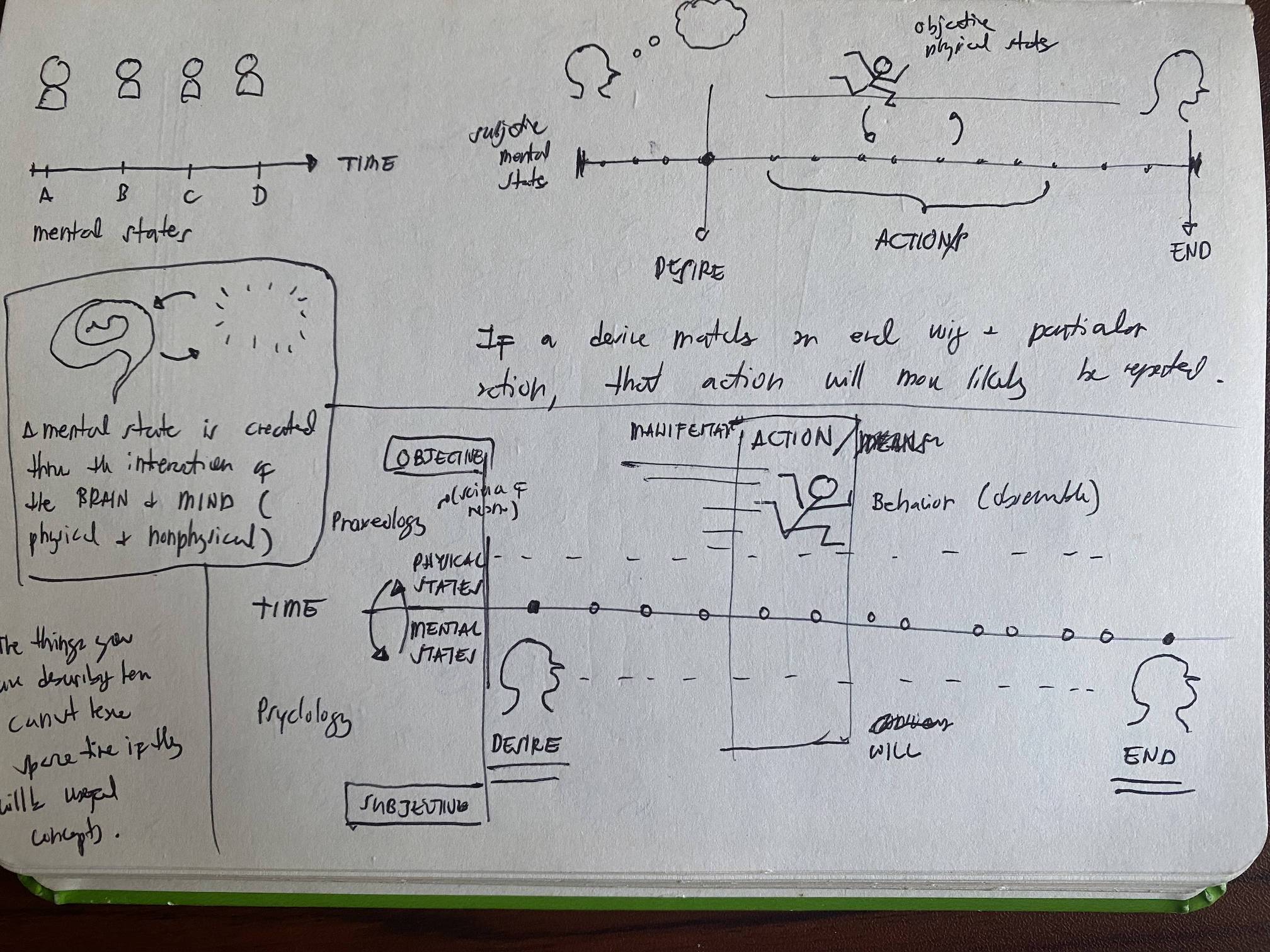The word action is a concept, a mental model used to describe a phenomena that occurs in the real world. The phenomena is this: Action is behavior with intention that intervenes in one’s status quo and results in an end state that may or may not approximate one’s original goal. It is the employment of means to attain a desire.
james clear said that habits is the smallest unit of behavior. I disagree: it is action. Action is the basic unit of behavior.
Actions has several parts:
Action, a definition
- An actor (conscious or unconscious)
- Change in motion
- Change in time
An action could create a core desired mental state immediately or stack with other actions to create the desired mental state over time. For example, if one’s intention is to feel ginhawa as often as possible, one could get there through two means:
- Short-term: Involves a few acttion and external factors
- Long-term: Involves multiple actions and external factors that set the stage for easier Ginhawa
Because Ginhawa is a mental state, it lies in the canvas of space and time and can only be achieved through action. To live a life filled with Ginhawa, one ought to:
- Develop short-term actions (habits) that could generate it daily (e.g., well-being practices).
- Work on bigger, long-term projects that make generating Ginhawa easier.
If one’s lifestyle is goal-oriented, the process stops after the action has produced the mental state. However, if one’s lifestyle is practice-oriented, one’s goal should be to continuously generate the mental state by continuously performing the action.
There are two kinds of action:
- Thinking about what action to take
- Doing the specific action
The first occurs in the sky level of the life management system, while the latter occurs at the ground level. living is about going back and forth between these two kinds of action. This back and forth makes sure that one is doing the right thing and doing it as present and mindful as possible.
A study of action involves an understanding of both mental and physical states because an action also contains a mental state. However, it happens at a very specific point in time. It does not include the mental states before and after its performance. Action occurs in between these mental states. Understanding action also involves a study of the rational calculations that man use to arrive at particular choices of action.
Mechanics of action

Related
References
Mises, L. V. (2012). Human Action: A Treatise on Economics. Martino Fine Books.